The controversial Solicitors Qualifying Examination is two years old. It was a seismic change for the profession, but is the new ‘super-exam’ delivering on its promises? Joanna Goodman reports
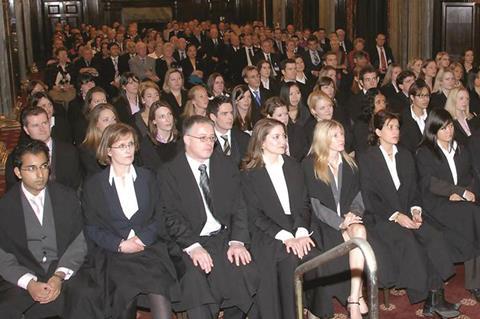
Since 2021, when the SQE replaced the Legal Practice Course (LPC) and training contract, progress has been made towards consistent standards and new routes into the profession. But beyond the practical and logistical problems faced by early cohorts, with last-minute exam cancellations and delayed results, challenges remain.
Qualifying as a solicitor now means passing SQE1 and SQE2 assessments, and completing two years’ qualifying work experience (QWE) which has been signed off by a solicitor or compliance officer for legal practice.
Assessments are provided by the education business Kaplan, in partnership with the Solicitors Regulation Authority. SQE1 is a comprehensive multiple-choice test of functioning legal knowledge (FLK). Candidates have to pass SQE1 before they can enrol for SQE2, which comprises 16 practical exercises designed to test six key skills in five practice areas. There are four oral assessments and 12 written assessments.
There are several routes to qualification. The solicitor apprenticeship enables school-leavers to qualify in six years. Graduates working as paralegals can take the SQE to qualify without a training contract. Firms responded to this more flexible system by developing training programmes targeting new demographics – school-leavers and career changers – as well as graduates.
Early careers
Weightmans’ apprenticeship academy provides three SQE apprenticeship programmes: a two-year paralegal apprenticeship, a solicitor degree apprenticeship (a six-year programme for school-leavers that includes a degree and the SQE1 and 2), and a 32-month graduate solicitor apprenticeship. There is a summer vacation scheme for students and a legal insights programme for 16-year-olds, whether or not they are studying. Weightmans currently has 69 legal apprentices participating in the various programmes. They are still transitioning from the LPC, so they still have LPC trainees and none of the SQE cohort has qualified yet.
As well as being the only law firm participating in the National Apprenticeship Show, Weightmans has an outreach programme to primary schools. ‘As people start legal apprenticeships at 18, it’s important to raise awareness of these new opportunities,’ says Denise Wright, who leads the early careers team.
Weightmans also participates in Learn Live, which produces careers videos for year-six students. It has taken a new approach to recruitment as school-leavers are appraised on their potential because they may not have work experience. Their personal circumstances are taken into account alongside academic grades, using the Rare contextual recruitment system and recruitment consultancy Amberjack to assess early careers potential.
When it comes to commercial/practical experience, an advantage of the legal apprenticeship scheme over the graduate/LPC/training contract route is that legal apprentices get practical experience on the job. They work at the firm four days a week and study at BPP University Law School for one day a week.
This day-release model reflects the firm’s experience that trainees who did the LPC while working part-time as paralegals tended to do better than those who joined after completing the LPC. ‘It also enables us to cover skills like digital literacy, communication and commercial awareness,’ says Wright. She explains that, as Weightmans’ first cohort of solicitor apprentices were in sixth form during Covid, they missed the opportunity to gain work experience. The firm provides a comprehensive induction, and close supervision throughout the legal apprenticeship programme.
Cost benefit?
'With the LPC, law firms were effectively giving out golden tickets, and then assessing their trainees’ competence. Now the SRA has introduced new pathways to provide consistency, but SQE is about end-point assessment'
Denise Wright, Weightmans
Cost is a key factor in accessibility and diversity, and SQE fees have increased 15% in two years. This month’s (September) increase was 11%. The SQE1 fee rose from £1,622 to £1,798 (i.e. £899 for FLK1 and £899 for FLK2) and SQE2 went up from £2,493 to £2,766. These costs are the same for resit candidates.

Pass rates have not risen in line with the fees – the SQE1 pass rate is 51% – so candidates are investing in preparation courses to improve their chances of passing first time.
The SQE format requires different preparation. ‘With the LPC, law firms were effectively giving out golden tickets, and then assessing their trainees’ competence,’ Wright says. ‘Now the SRA has introduced new pathways to provide consistency, but SQE is about end-point assessment – there’s no reference to what you do to prepare for the exams, so candidates are investing in preparation courses.’
Lucie Allen, managing director of legal exam preparation provider BARBRI Global, notes that the profession is still in transition. ‘2024 will be the first year that university graduates will mainly only have the choice of SQE rather than LPC,’ she says, ‘so what we are seeing now is not reflective of how things will be in the next couple of years.’
While BARBRI has seen increased numbers of candidates, there have been more exemptions than were anticipated. Allen explains that people who have been practising law in other jurisdictions can apply for SQE2 exemptions, if the law there is similar to English law or because they have sufficient experience. Consequently, more people are sitting SQE1 than SQE2.
'2024 will be the first year that university graduates will mainly only have the choice of SQE rather than LPC'
Lucie Allen, BARBRI
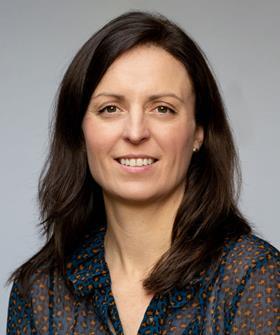
The SQE has led more employers to think about upskilling and talent development – not just City law firms, whose overseas lawyers have the opportunity to qualify as English lawyers; mid-size and high street firms are drawing down the apprenticeship levy and upskilling their paralegals. BARBRI is also seeing more interest from the in-house community.
Preparation is a critical success factor, increasing the cost of qualification. ‘SQE1 is multiple choice, and it might be overwhelming if you hadn’t prepared and had practice,’ says Allen. BARBRI is reporting strong results. ‘The average pass rate will be between 51% and 53% over the first three SQE1 exams. BARBRI students are reporting 67% so far. The pass rate is higher for people who are working while studying. On SQE2, the latest average pass mark was 77% and BARBRI’s was 82.5%.’
Earning while learning: apprenticeships
The solicitor apprenticeship allows lawyers to qualify straight from school. Holly Moore (pictured) was the UK’s first in-house solicitor apprentice, training at ITV’s legal department where she works in the brand protection team. She is also on the BARBRI SQE Prep advisory board.

Moore joined ITV in 2016 and qualified in 2022. ‘I wanted to get my law degree, but I was ready to start earning money,’ she says. She was one of only two solicitor apprentices at City University. ‘As the first cohort, we had to learn by doing,’ she explains, adding that as the SQE1 was multiple choice format, it was completely different from her law degree, where assessments involved long written answers. ‘Even though I had graduated with a first in law, I wouldn’t have passed without the BARBRI prep course.’
SQE1 had little relevance to Moore’s work. ‘Being a lawyer isn’t about looking at a multiple choice question and picking the best answer.’ However, working in a legal department provided practical skills and experience to pass SQE2. ‘The ability to study alongside work shortens the time it takes to qualify,’ she says, adding that she would not have been able to afford to qualify via the LPC route.
Seema Gill qualified last year having worked for seven years as a legal secretary at Howell-Jones LLP, where she is a solicitor in the commercial property team. Gill studied for a law degree part-time while working and raising her daughter.
In 2020 when she was furloughed, Gill discovered the SQE route to qualification and presented a proposal to her firm. ‘I did not request sponsorship, but I won an essay competition scholarship with BARBRI,’ she says.
Gill completed BARBRI’s 20-week prep course during evenings and weekends. She passed SQE1 in November 2021 and SQE2 in April 2022. ‘It took a while to get used to the [multiple choice] format as the LLB is essay-based,’ she explains. ‘I was concerned that people thought the SQE would make it easier to qualify, but there needs to be a standard. It is a difficult job so it doesn’t make sense that everyone who attempts the SQE sails through it.’
Addressing ethnic disparities
Disparity between white and Black candidates’ results is a blot on SQE’s record, apparent even in pilots. The SRA has commissioned Exeter University to look into this, and their recently published literature review found a variety of factors influencing differential outcomes in professional assessments, including:
- The availability of support in education and work for different minority groups.
- Perceived barriers and/or opportunities to entry and progression based on characteristics such as social background and ethnicity.
- Positive or negative experiences at school, college or university.
- Life circumstances, e.g. socio-economic status.
Allen, like others, does not consider the SQE a silver bullet to fix diversity issues, which may relate to the international spread of candidates and intersectional factors. However, she understands that the apprenticeship scheme is widening access, including to people who may not intend to practise as a lawyer – perhaps qualifying to support a career in legal tech or innovation.
Qualification routes like solicitor apprenticeships that enable candidates to earn while they learn are an important part of improving social mobility.
Language and learning
Eve Dullabh, co-founder and director of education at the Law Training Centre in Canterbury, has developed training methodologies to level the playing field for diverse candidates. She appreciates that the SQE brings transparency, standardisation and accessibility by removing the training contract requirement. But she suggests that the lower pass rates for Black candidates may be due to an increase in the number of international candidates who may fail multiple choice tests due to misunderstanding the nuances of the English language and legal terminology. One word can make a difference between a right and wrong answer.
‘Four months after we started running SQE preparation courses, we launched an online foundation course covering the language of English law with the aim of giving international students and non-law graduates more confidence as they prepared for SQE1,’ she explains, adding that the foundation course runs in parallel with SQE preparation.
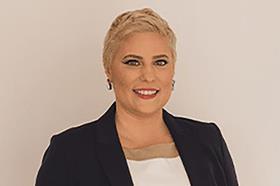
Dullabh also works with SQE candidates with special educational needs (SEN) who also struggle with the multiple choice format. ‘Our SQE curriculum is delivered with written, visual, and audio resources for each topic,’ she says. ‘Tutor support is important as SEN candidates are often reticent about asking questions in lectures and online forums.’
Online courses and assessments meant Dullabh’s students experienced no downtime during the pandemic. She believes that it would make sense to move the SQE assessments online too, which could keep fees on an even keel. ‘Perhaps the SQE should be an open-book exam, because the ability to do quick research on the spot is an excellent skill,’ she adds.
'We launched an online foundation course covering the language of English law with the aim of giving international students and non-law graduates more confidence as they prepared for SQE1'
Eve Dullabh, Law Training Centre
Mary Bonsor, founder and CEO of Flex Legal, a platform which connects legal teams and interim legal professionals, agrees. ‘Lawyers have time to research things, so why are we testing people’s ability to remember rather than being able to find the right answer?’ she asks. ‘I would like the SQE to move to an open-book format with fewer questions. Currently candidates only have three minutes for each question, so they have to rush through them, which doesn’t reflect reality.’
'Doing five hours of multiple choice questions means it’s really hard to pass SQE1 if you’re dyslexic'
Mary Bonsor, Flex Legal
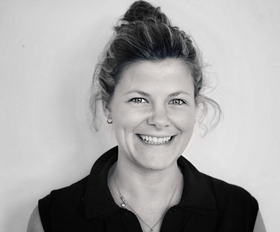
Two years ago, to coincide with the introduction of the SQE, Flex Legal teamed up with BARBRI and social mobility programmes STRIVE and SMBP (Social Mobility Business Partnership) to create Flex Trainee, a two-year social mobility scheme structured around in-house secondments. Like the Law Training Centre, it provides a bespoke readiness programme to help trainees quickly fit into their placements. Flex trainees’ exam costs and prep courses are covered by the apprenticeship levy and they study one day a week and work for four days – to earn while they learn. There are currently 50 Flex trainees.
But Bonsor is also concerned about SQE1’s multiple choice format in relation to SEN candidates. ‘Doing five hours of multiple choice questions means it’s really hard to pass SQE1 if you’re dyslexic,’ she explains. ‘The SQE is designed to test whether someone is going to be a good lawyer, and one of our best paralegals has severe dyslexia. He’s a good problem solver because he thinks slightly differently and he’s very commercial. Those skills become even more important as technology improves.’ The SRA provides some adjustments for dyslexia, but like Dullabh, Bonsor hopes the format will evolve to take SENs into account.
The research gap and commercial awareness
Are the new qualifications genuinely preparing the next generation of lawyers for modern legal practice, where lawyers enhance their legal skills with technology, data science and commercial insight?
'We want to be a diverse firm, not a firm that recruits diverse people and manufactures them into what we were'
Claire Stripp, Browne Jacobson
Claire Stripp, head of talent and knowledge at Browne Jacobson, is concerned that ‘legal training is still very 20th century. The world that law is being practised in is very different from what it was even a few years ago, and this is not reflected in the skillset we are delivering’.
Browne Jacobson is designing a programme using the O-shaped lawyer framework (around five attributes: Openness, Optimism, Opportunity, Ownership and Originality). ‘We want to be a diverse firm, not a firm that recruits diverse people and manufactures them into what we were,’ says Stripp.
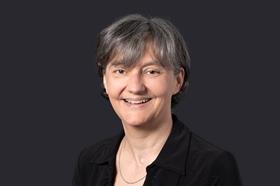
Browne Jacobson is the UK’s leading employer in the Social Mobility Foundation’s Employer Index, has an Innovate UK knowledge transfer partnership with the University of Nottingham on diverse linguistics, and is working with Plain Numbers on communicating numbers – financials and key performance indicators – in ways that help people make informed decisions.
For Browne Jacobson, like others, 2023 is a transitional year. It accepts 20 trainees a year, who are paid a full-time salary. SQE candidates will spend a year gaining QWE, a second year completing the SQE with the College of Legal Practice, and then another year on QWE. ‘We don’t want our trainees to work while they are studying – we want to set them on the path to success,’ she says.
Stripp is concerned that SQE2 covers skills and knowledge, but not research. ‘I don’t see SQE2 assessing research skills in the way that we need them in practice,’ she says. ‘It doesn’t address knowing where to look for the right content, knowing when to stop or discovering there’s no answer. Finding out there’s no answer is as valuable as finding the answer.’
In response to the broader practical elements of SQE2, traditional law schools increasingly recognise that even their full-time courses need to include commercial skills. For example, The Dickson Poon School of Law, at King’s College London, has recently established a Professional Law Institute (PLI). This has launched a new, two-year master’s degree – the MSc Law and Professional Practice – for non-law graduates wanting to become lawyers. The programme can also be taken as a one-year Post Graduate Diploma enabling students who obtain positions in firms or industry to move on to SQE preparation immediately.
Senior lecturer Lloyd Gash explains the rationale behind the new course: ‘We understand the tension between the need to pass the SQE, demonstrate commercial awareness for applications, and develop the critical thinking required to be a good lawyer. We embed problem-based learning in our master’s degree so that our students apply legal principles to the type of problems clients face in practice.’
Mike Butler, the director of the PLI, adds: ‘We appreciate that the market continues to value students who have taken non-law degrees but still requires these students to have undertaken a rigorous conversion course notwithstanding the removal of the Graduate Diploma in Law. We have a strong partnering relationship with BARBRI who provide the training necessary to pass the SQE.’
Looking ahead
Feedback on the SQE so far is mostly positive, while questions remain around SQE1’s multiple choice format. There are options for further change: should the SQE move online? Should it be an open-book exam? How can it be adjusted to improve diversity and inclusion? And when all the issues have been ironed out, will the SQE simply move the bottleneck from training contract applications to qualified solicitors– i.e. will there be an oversupply of lawyers?
It is quite hard to extrapolate from just two years – although training options are evolving, firms are still transitioning from the LPC/training contract system. As more SQE candidates qualify, and tweaks are made to the training and assessment process, the hope is that future lawyers will qualify into the profession better prepared for what lies ahead.

Joanna Goodman is a freelance journalist































2 Readers' comments